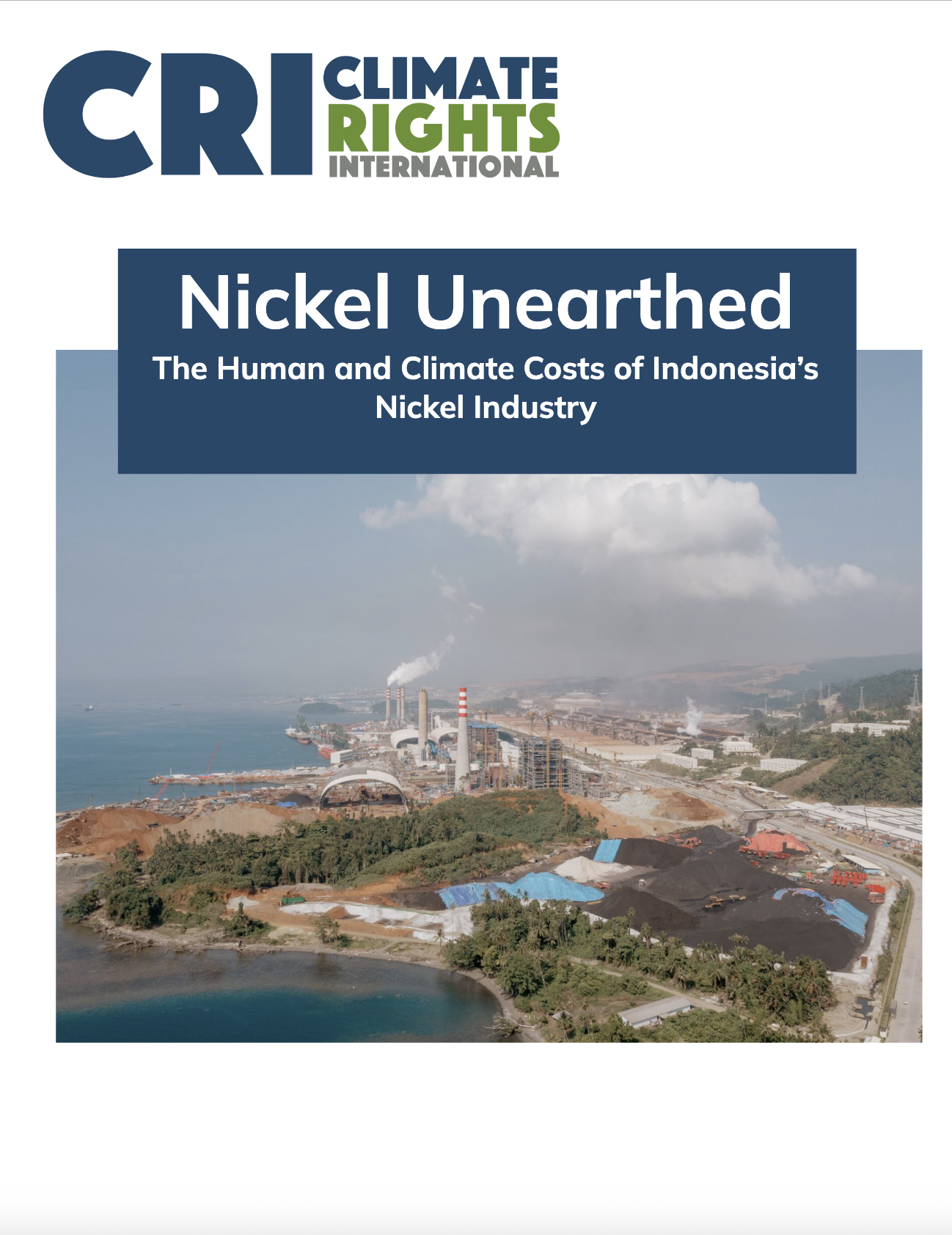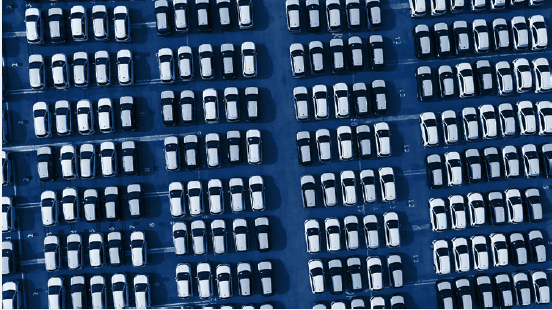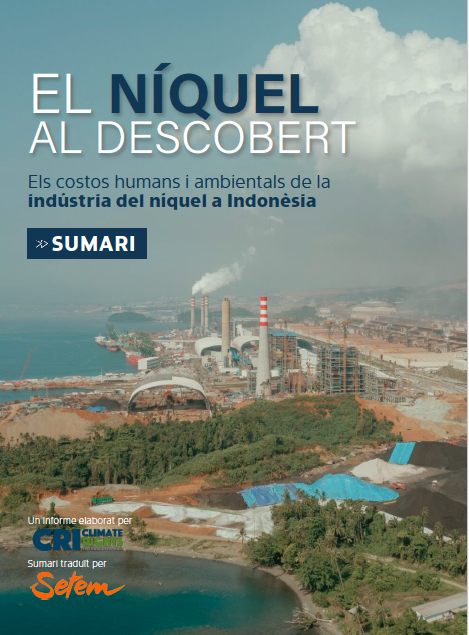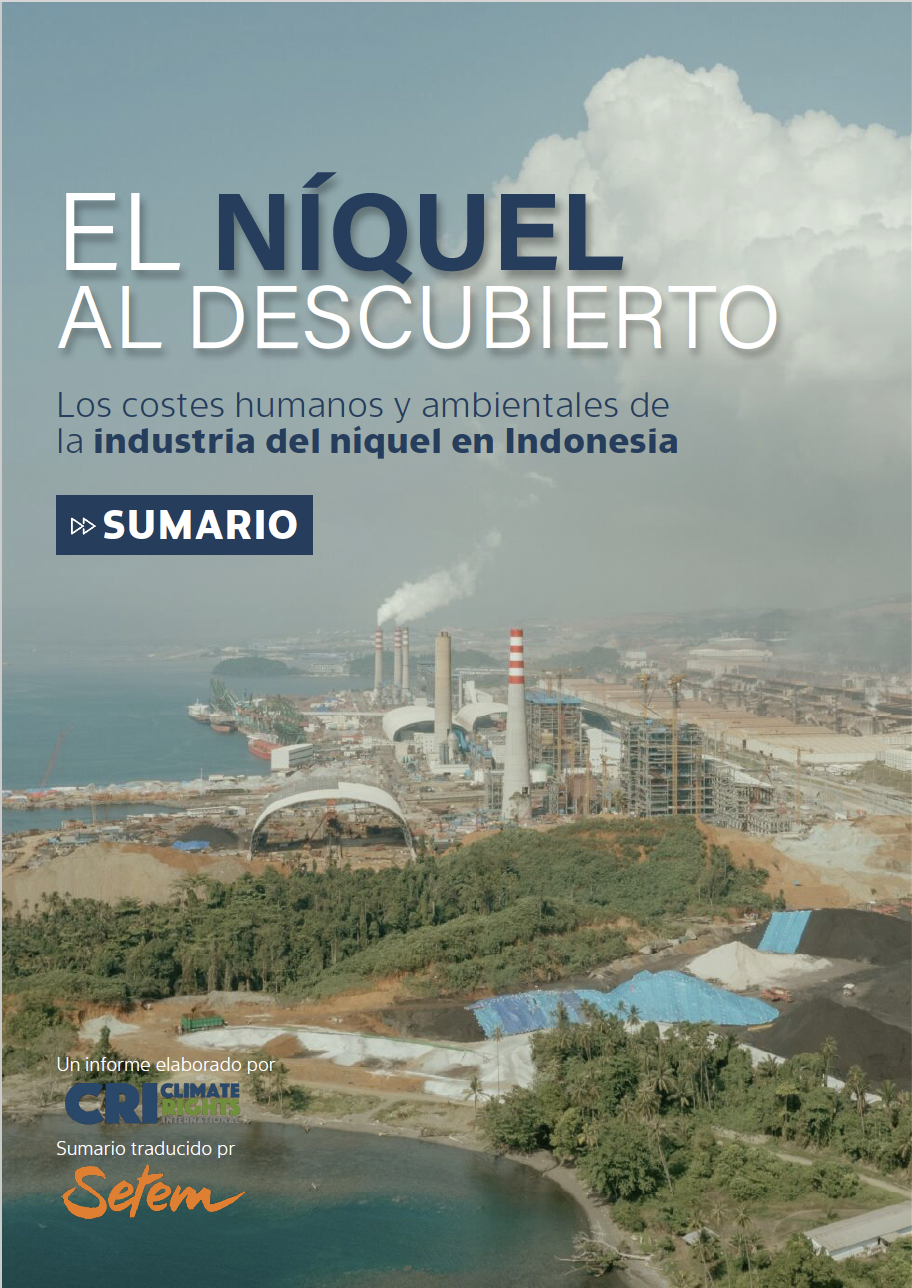Indonesia is the world’s largest producer of nickel. In 2022, it supplied 48% of the global demand for this metal. A 60% increase in demand is expected by 2040, due to the growing demand for electric vehicles.
From the Fair Electronics campaign, the impacts of mining linked to electronics production in the Global South have been denounced. Currently, there is an increase in the demand for these natural resources, as they are also essential for the production of electric vehicles. One example is nickel, which is used in electric batteries. The rise in its extraction and processing is having negative consequences on the ecosystems and local communities in Indonesia near the mines and smelters.
In the current context of the climate crisis, it is urgent to carry out an energy transition to move away from fossil fuels and reduce carbon emissions. The transport is a key sector for this transition, as it accounts for 25% of EU emissions. However, for this transition to be truly sustainable, the global impacts of increasing the production and consumption of electric vehicles must be taken into account, and a model that reduces the number of private vehicles should be prioritized, in favor of public transport, shared mobility, and other alternatives.
Climate Rights International has documented the environmental and human impacts of IWIP, a large nickel smelting and processing project in Indonesia, and the surrounding nickel mines in Halmahera.
Although the goal of the transition to EVs is to reduce the carbon footprint of the automotive industry, nickel smelting at IWIP has an enormous carbon footprint. Instead of using abundant solar and wind energy, IWIP has already built at least five coal-fired power plants, and will eventually have twelve. Once fully operational, they will consume more coal than Spain or Brazil in the course of a year.
On the other hand, more than 5,331 hectares of tropical forest have been cleared for mining concessions in Halmahera, resulting in a total loss of approximately 2.04 million metric tons of greenhouse gases (CO2e) that were previously stored as carbon in those forests.
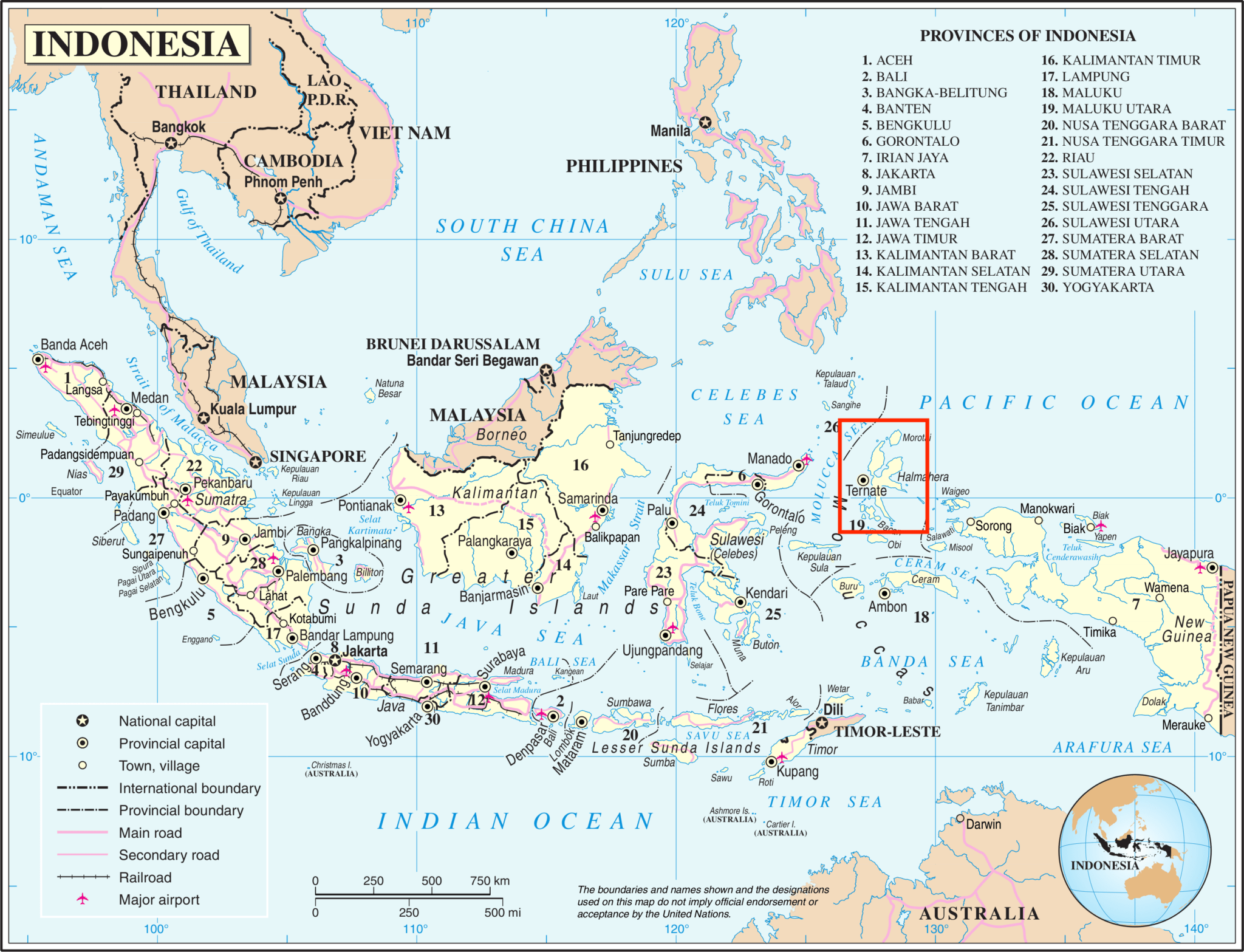
Map of Indonesia. Red box around Halmahera. Sourced by Climate Rights International.
The construction and operation of the project has devastated the lives of indigenous peoples and other members of the rural community, and has caused environmental damage on both local and global scales.
Climate Rights International interviewed 45 people living near nickel smelting and mining operations, who described serious threats to their territorial rights, the right to continue traditional lifestyles, the right to access clean water, and the right to health, due to the mining and smelting activities of IWIP and the surrounding nickel mining areas.
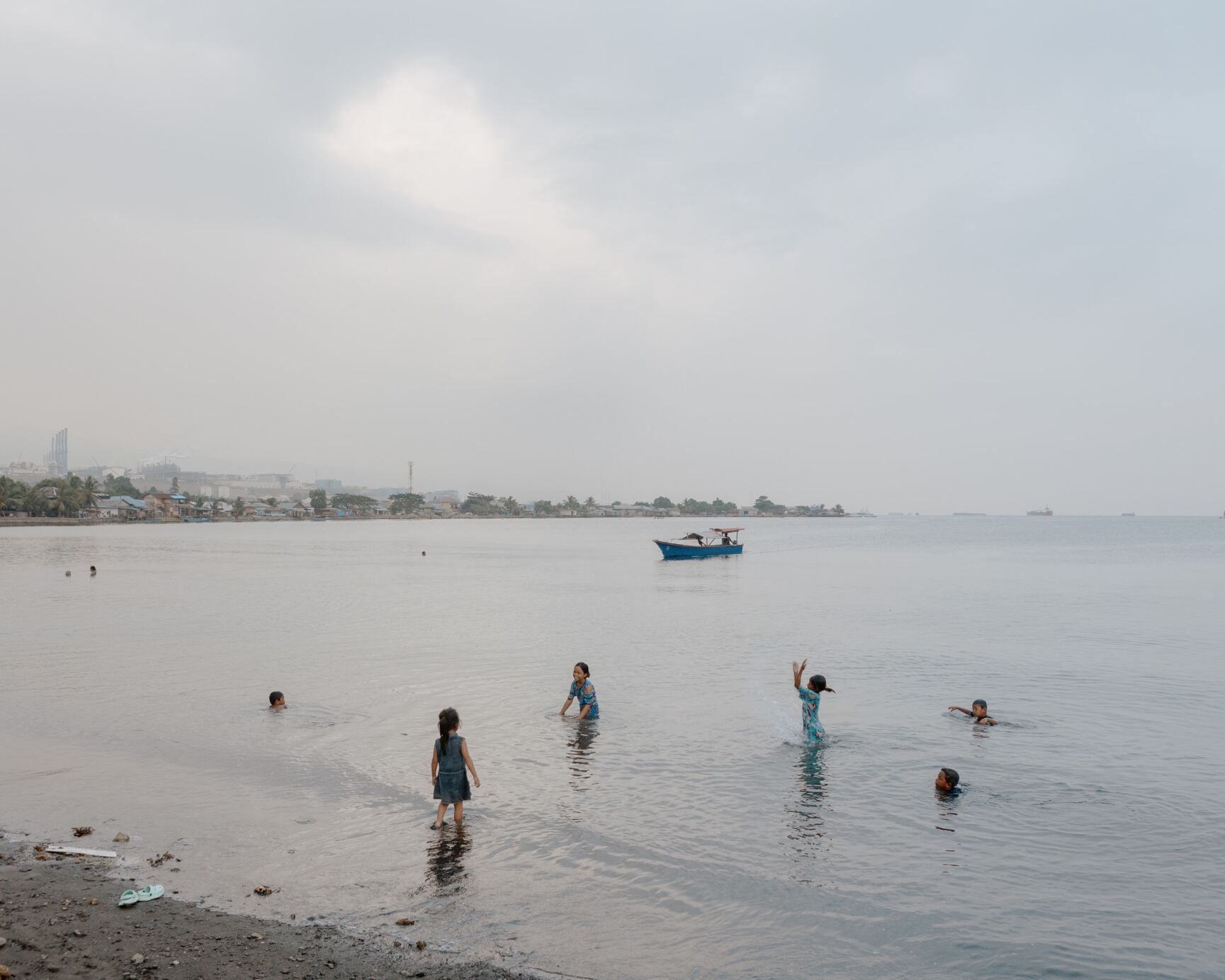
Children playing on the beach in Lelilef, outside the Indonesia Weda Bay Industrial Park. Credit: Muhammad Fadli for Climate Rights International.
Some companies, in coordination with Indonesian police and military, have been involved in land expropriation, coercion, and intimidation of indigenous peoples and other rural communities, who are facing serious and potentially existential threats to their traditional ways of life.

Mine near Sagea Lake in Central Halmahera. Credit: Muhammad Fadli for Climate Rights International.
“Before the mining, the fish stock was abundant, the sea was clear. Now, I can’t catch fish near [IWIP]. The water is dirty, and the security chases us away. The water pollution is from mining.”.
MAX SIGORO, SAWAI FISHERMAN

A fisherperson navigates through the mangroves in Sagea, November 2023. Credit: Muhammad Fadli for Climate Rights International.
The construction and operation of the project has devastated the lives of indigenous peoples and other members of the rural community, and has caused environmental damage on both local and global scales.
Children playing on the beach in Lelilef, outside the Indonesia Weda Bay Industrial Park. Credit: Muhammad Fadli for Climate Rights International.
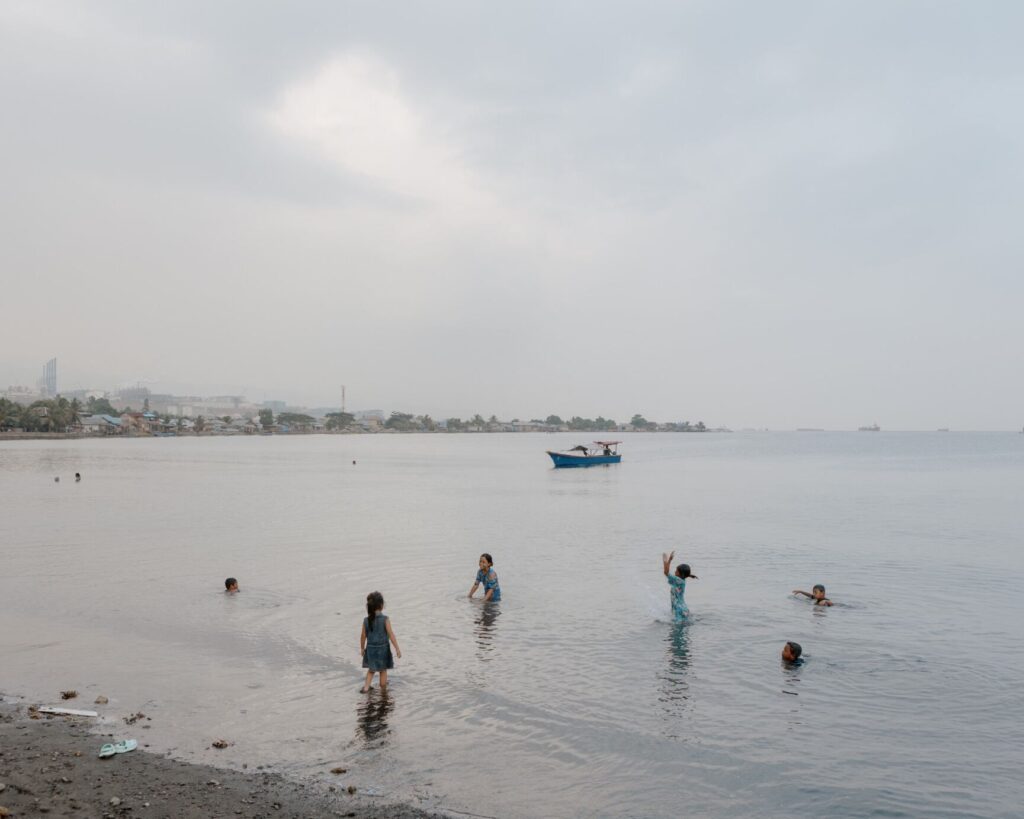
Some companies, in coordination with Indonesian police and military, have been involved in land expropriation, coercion, and intimidation of indigenous peoples and other rural communities, who are facing serious and potentially existential threats to their traditional ways of life.
Mine near Sagea Lake in Central Halmahera. Credit: Muhammad Fadli for Climate Rights International.
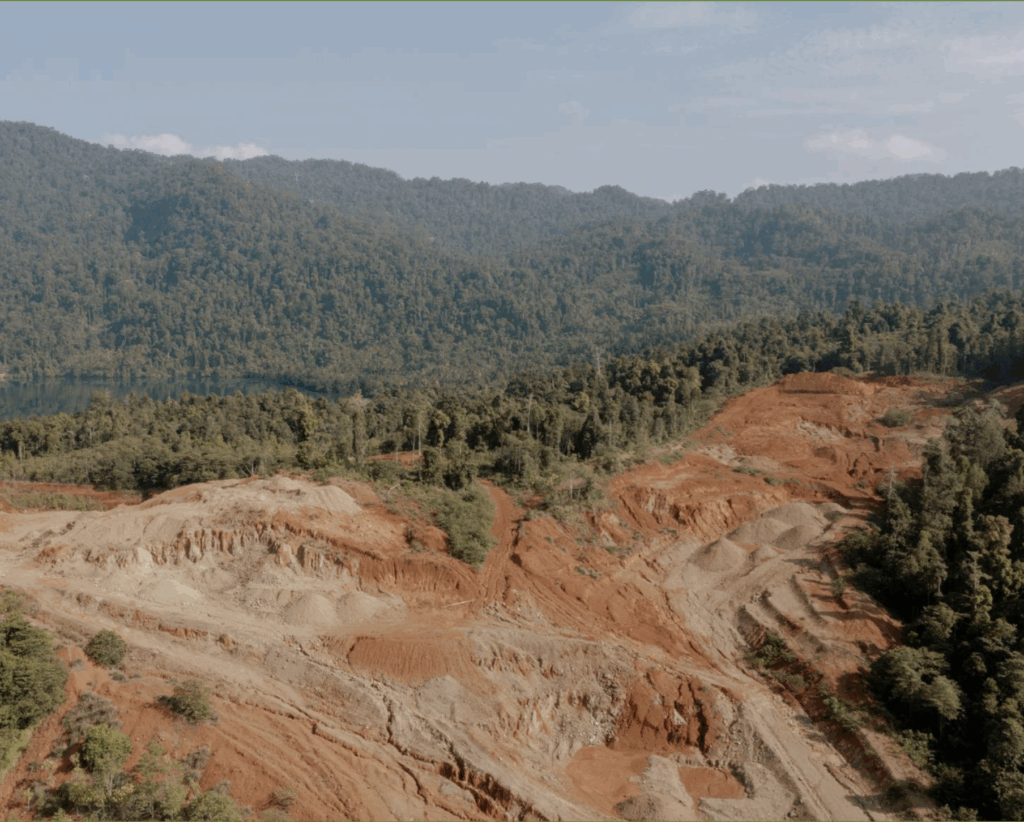

“Before the mining, the fish stock was abundant, the sea was clear. Now, I can’t catch fish near [IWIP]. The water is dirty, and the security chases us away. The water pollution is from mining.”.
MAX SIGORO, SAWAI FISHERMAN
A fisherperson navigates through the mangroves in Sagea, November 2023. Credit: Muhammad Fadli for Climate Rights International.
Recommendations from the report
To electric vehicle companies:
🔴 Electric vehicle companies such as Tesla, Ford, and Volkswagen, which have contracts to source nickel from Indonesia, including companies operating at IWIP, must pressure suppliers, mines, and/or mineral processors to change practices that harm the environment and human rights.
🔴 Conduct audits of mines and facilities to ensure suppliers respect human rights and the environment.
🔴 Improve transparency in electric vehicle supply chains by publicly disclosing information about all companies involved in mining, refining, smelting, and battery manufacturing.
🔴 Demand that nickel suppliers halt the construction of all new coal power plants and produce a plan to use renewable energy.
To IWIP and the nickel mining and smelting companies in Central and East Halmahera:




What to do from Catalonia?



Is a just transition possible?
Check out the most effective measures to achieve a fairer and more sustainable energy transition in Spain and reduce the primary extraction of critical raw materials.
→ Full report by Climate Rights International.
→ Summary translated into Catalan and Spanish by SETEM Catalunya.


